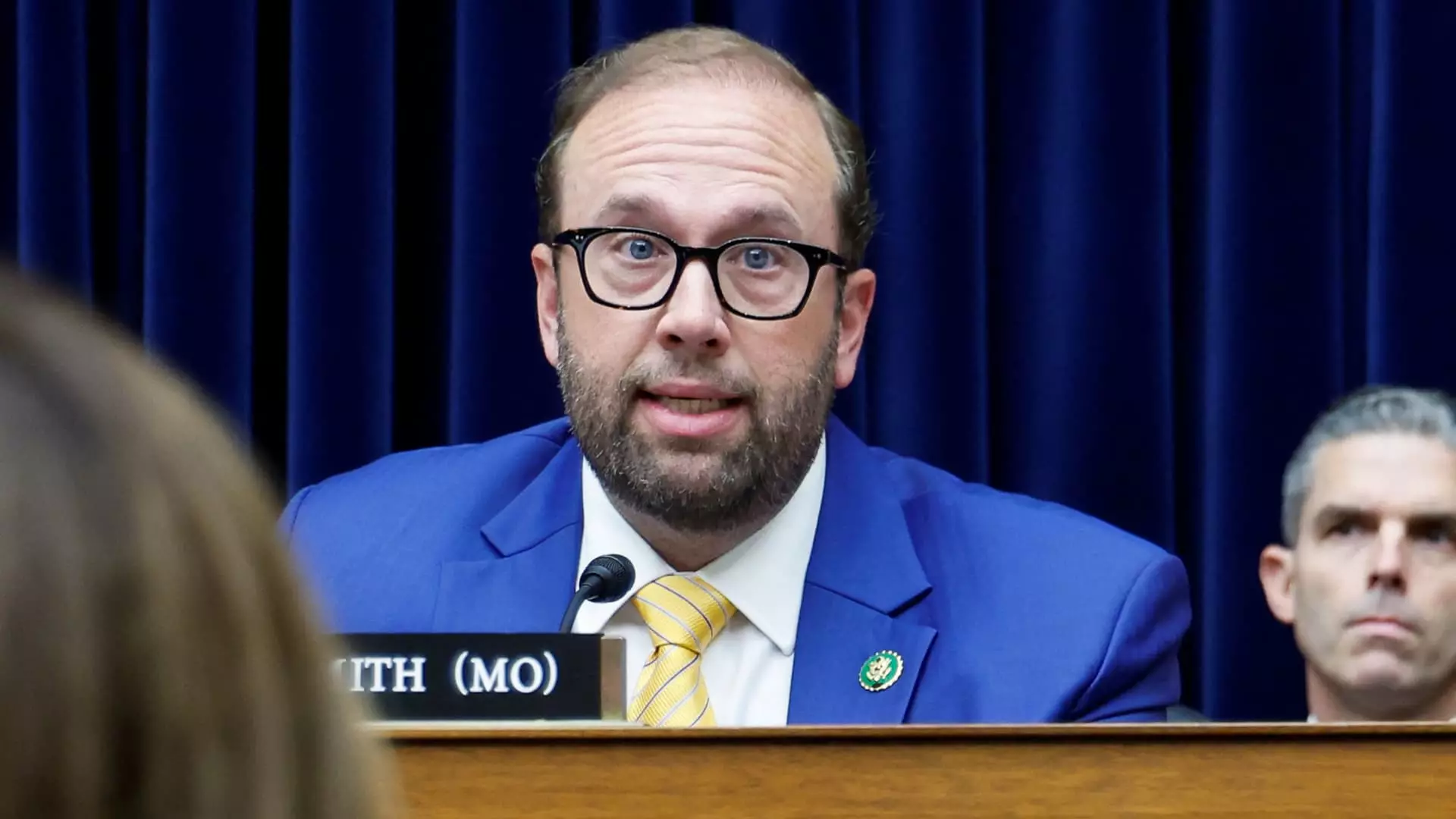As House Republicans hastily push through a significant overhaul in the tax system, propelled by President Donald Trump’s economic ambitions, a crucial debate brews under the surface. The passage of tax benefits, amounting to trillions of dollars, comes with profound implications not just for the economy, but for the very fabric of societal equity. The Ways and Means Committee’s recent party-line vote merely scratches the surface of a deeply divided stance on taxation policy, particularly concerning the contentious state and local tax (SALT) deduction.
While the GOP hails this as a “One, Big, Beautiful Bill,” the reality is that the legislation is nowhere near a consensus solution. Instead, it presents a troubling picture of a fragmented approach to tax reform that appears disproportionately favoring affluent populations, particularly those in high-tax states. The proposed increase of the SALT cap to $30,000 for individuals earning less than $400,000 may appear benevolent on the surface, yet it inadvertently reflects a systemic bias toward higher earners, leaving a significant portion of the population—especially those in lower and middle-income brackets—in a dubious position.
Fiscal Priorities or Political Gamesmanship?
House Republicans tout the legislation as a means of delivering on Trump’s campaign promises; yet, one must question whether these tax benefits serve the broader American populace or merely cater to special interests entrenched in the upper echelons of society. In a glaring oversight, the extra $4,000 deduction slated for older Americans fails to address the root problem: Social Security income remains taxable, to the detriment of millions of elderly taxpayers. This proposal appears more like a political shield than an essential remedy, introducing marginal benefits without genuinely altering the financial landscape for retirees who raise the question—what exactly is the plan for financial security?
The narrative projected by critics and policy analysts reveals alarming shortcomings in the proposed legislation, particularly regarding the child tax credit that extends only to $2,500 per child through 2028. This might seem like a boon, yet it continues to exclude millions of children in poverty who cannot take full advantage of the current $2,000 credit. By failing to include low-income families in this key metric of tax relief, the bill essentially marginalizes those who need assistance the most.
The Illusion of Economic Growth
Supporters of this tax plan argue that economic growth will follow without tangible evidence to support such theories. The history of the Tax Cuts and Jobs Act (TCJA) of 2017 shows that tax cuts disproportionately benefit higher-income households while often neglecting the middle class and working poor. This cycle of favoring the wealthy under the guise of economic expansion provides a thrilling narrative for political leaders but fails economically and ethically.
Though the House Ways and Means Committee insists that they work in concert with the President, the Senate will likely play an opposing role, complicating the path ahead. Passing major tax legislation is never straightforward, and substantial revisions will likely emerge in the Senate, creating a possible dilution of the initial proposals.
This lack of cohesion raises questions about whether the political objective supersedes effective fiscal policymaking. Americans deserve a tax code that is both fair and equitable, allowing them to keep more of their hard-earned income rather than filling the coffers of the affluent while ignoring the struggles of regular citizens. Real economic policy must go beyond politics—it should fulfill a moral obligation to support and uplift all Americans, particularly those at the bottom of the economic ladder.
As we observe the ongoing policy wrangling, vigilance is essential. We must call for a tax strategy that reflects and serves the diverse array of American lives, rather than one that simply serves the wealthy elite. Whether through genuine tax relief, meaningful social security reform, or a re-evaluation of how we support families, the urgency for a fair and just economic framework should remain at the forefront of policy discussions. The stakes are high, and the consequences of getting it wrong could be dire.

